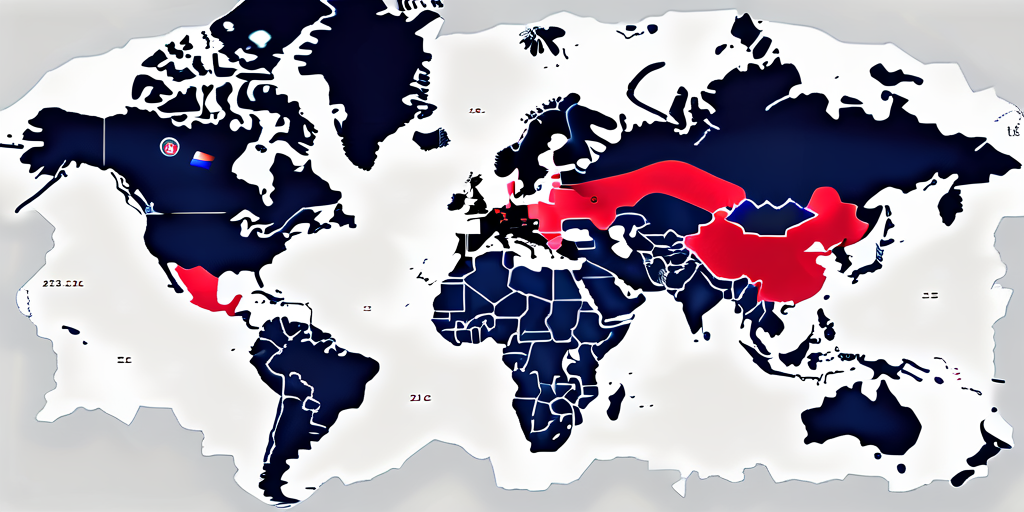Interpol Red Alerts have become an increasingly prominent topic in recent years, with Russia’s latest red alert raising concerns and sparking discussions all over the world. Understanding the purpose and process of these alerts, as well as their global impact, is crucial in comprehending the significance of Russia’s involvement in the Interpol system.
Understanding Interpol Red Alerts
The Purpose and Process of Red Alerts
Interpol Red Alerts serve as an international arrest warrant, providing member countries with information about individuals wanted for extradition or prosecution. These alerts are issued by one country to request the cooperation of other member countries in apprehending and extraditing the wanted individuals. The process involves submitting a detailed dossier of evidence to Interpol, who then disseminate the information to their global network of law enforcement agencies.
Red Alerts are not international arrest warrants themselves; rather, they serve as a notification to member countries that a person is wanted and provide the necessary information to locate and apprehend them. Once an individual is arrested, the country that issued the alert will initiate the extradition process according to their domestic laws and bilateral agreements with the arresting country.
When a Red Alert is issued, law enforcement agencies around the world are put on high alert. They carefully examine the provided evidence and begin their investigations to locate the wanted individual. The dissemination of information through Interpol’s network ensures that member countries are aware of the situation and can take appropriate action.
The Global Impact of Interpol Red Alerts
Interpol Red Alerts carry significant weight in international law enforcement cooperation. They enable member countries to collaborate and apprehend individuals who are suspected of committing serious crimes, including terrorism, human trafficking, and drug-related offenses. By promoting swift and effective global cooperation, Red Alerts contribute to the maintenance of international security and the fight against transnational organized crime.
Law enforcement agencies worldwide rely on Interpol Red Alerts to enhance their efforts in combating criminal activities. The alerts serve as a powerful tool to track down and apprehend individuals who pose a threat to global security. The exchange of information and intelligence between member countries helps in building a comprehensive picture of the wanted individuals, their networks, and their activities.
However, the strategic use of Red Alerts can also be politically motivated, raising questions about their fairness and potential for abuse. Critics argue that some countries may exploit the system to target political opponents or individuals who are perceived as threats to their regimes. This raises concerns about the impartiality and credibility of the Red Alert system.
It is essential to consider the context of Russia’s latest Red Alert within these broader dynamics. The geopolitical landscape and international relations can influence the issuance and response to Red Alerts. Political considerations and diplomatic tensions between countries may impact the way in which member countries handle these alerts. Therefore, it is crucial to approach each Red Alert with caution and carefully evaluate the evidence and motives behind its issuance.
The Context of Russia’s Latest Red Alert
Russia’s History with Interpol Red Alerts
Russia has been known to frequently employ Interpol Red Alerts to target individuals it perceives as political threats, dissidents, or individuals engaged in activities deemed illegal by the Russian government. While some alerts are valid and based on genuine criminal charges, others have faced scrutiny for their allegedly political nature.
This controversial history has led to concerns from human rights organizations and governments, who fear that Red Alerts may be used as tools of repression and persecution. Russia’s latest Red Alert has, once again, raised questions about the motivations behind such requests and the potential consequences for individuals targeted.
The Political Implications of Russia’s Red Alerts
The utilization of Red Alerts by Russia carries political implications that extend beyond the individuals targeted. By issuing Red Alerts against political opponents or activists, Russia sends a message domestically and internationally, demonstrating its determination to silence dissent and assert its authority.
This practice can have a chilling effect on the freedom of expression and human rights, as individuals may face intimidation, harassment, and limitations on their travel and activities. Furthermore, the controversial use of Red Alerts by Russia can strain its relationships with other countries, who may question the credibility and legitimacy of the alerts.
The Details of the Latest Red Alert
The Individuals Involved
The latest Red Alert issued by Russia targets several individuals who are alleged to have committed crimes against the state, including acts of espionage, treason, and inciting unrest. While the details of these individuals and the specific charges have not been disclosed publicly, their identification remains a matter of utmost interest.

The Alleged Crimes
The crimes associated with the latest Red Alert are serious offenses that threaten national security and stability. Espionage, treason, and incitement of unrest are charges that have severe repercussions, and the proper legal processes must be followed to ensure a fair trial and the protection of human rights.
The International Response to Russia’s Red Alert
Reactions from Global Leaders
Russia’s latest Red Alert has prompted reactions from global leaders and the international community. Many countries have expressed concern about the potential misuse of Red Alerts for political purposes. Calls for increased transparency, adherence to due process, and respect for human rights have been voiced by numerous governments.

Potential Consequences for Russia
The controversy surrounding Russia’s Red Alerts may have consequences for the country itself. Diminished trust, strained cooperation, and reputational damage are all potential outcomes that Russia may face if the international community perceives its actions as politically motivated or a violation of the principles and values upheld by Interpol.
Future Predictions for Russia’s Interpol Involvement
The Potential for Future Red Alerts
Given Russia’s history and the international response to their latest Red Alert, it is likely that similar requests will continue to make headlines in the years to come. The focus will be on whether Russia’s involvement in the Interpol system shifts toward a more balanced and fair approach in line with international standards.
The Impact on Russia’s International Relations
The consequences of Russia’s Interpol Red Alerts on its international relations will depend on how these alerts are perceived and addressed. If concerns about political motivations persist, it could strain bilateral relationships and undermine Russia’s standing in the global community.
Conclusion
In considering Russia’s latest Interpol Red Alert, it is essential to bear in mind the purpose and process of these alerts and their broader global impact. The context surrounding Russia’s history with Red Alerts, the details of the latest alert, and the international response all contribute to shaping the current discourse on this issue.

As the world continues to grapple with the complexities of international law enforcement, ensuring the proper use of Interpol Red Alerts becomes increasingly vital. Balancing the fight against transnational crime with the protection of human rights and political freedoms remains a challenge that requires ongoing dialogue, scrutiny, and adherence to international norms.
